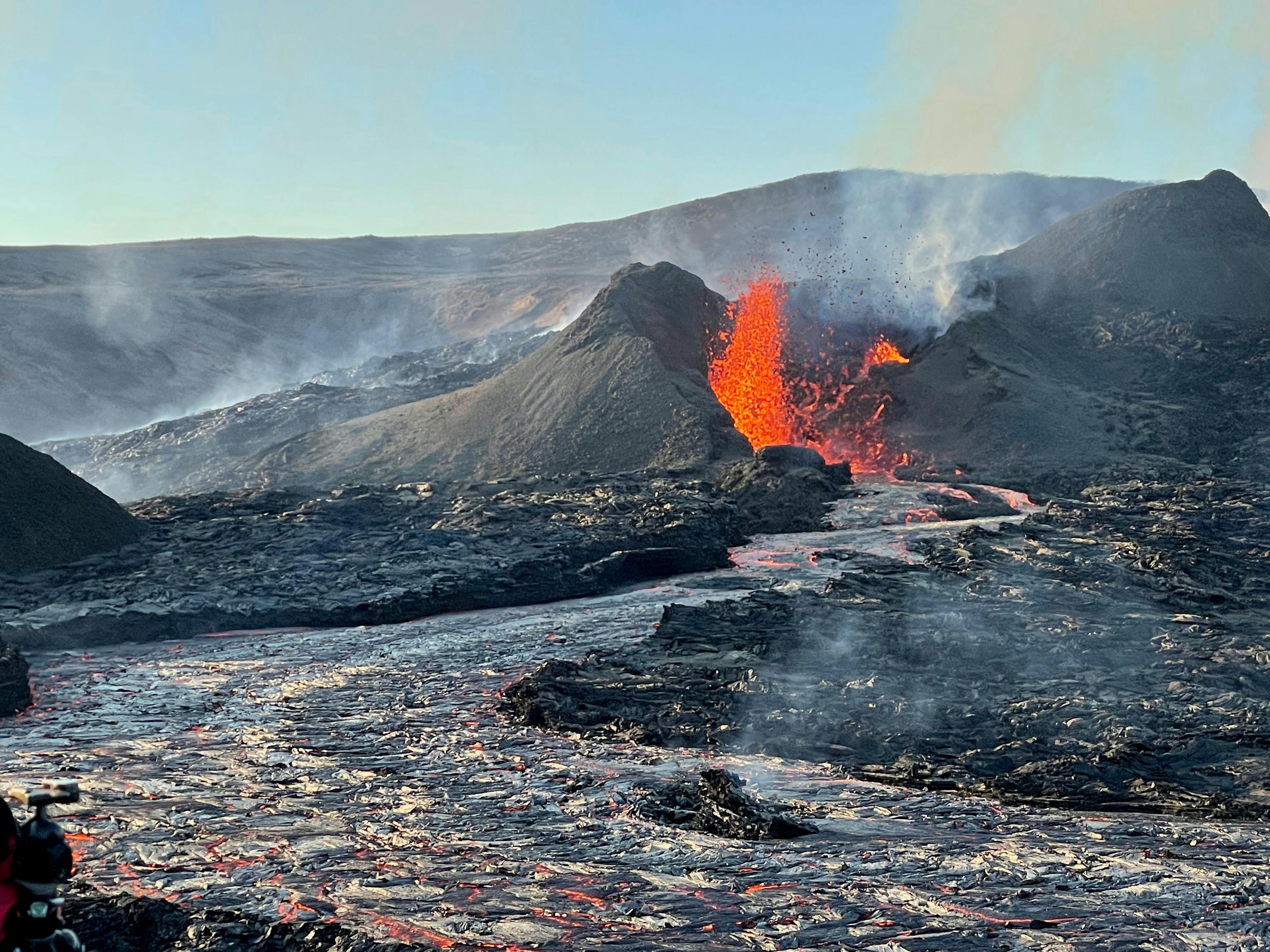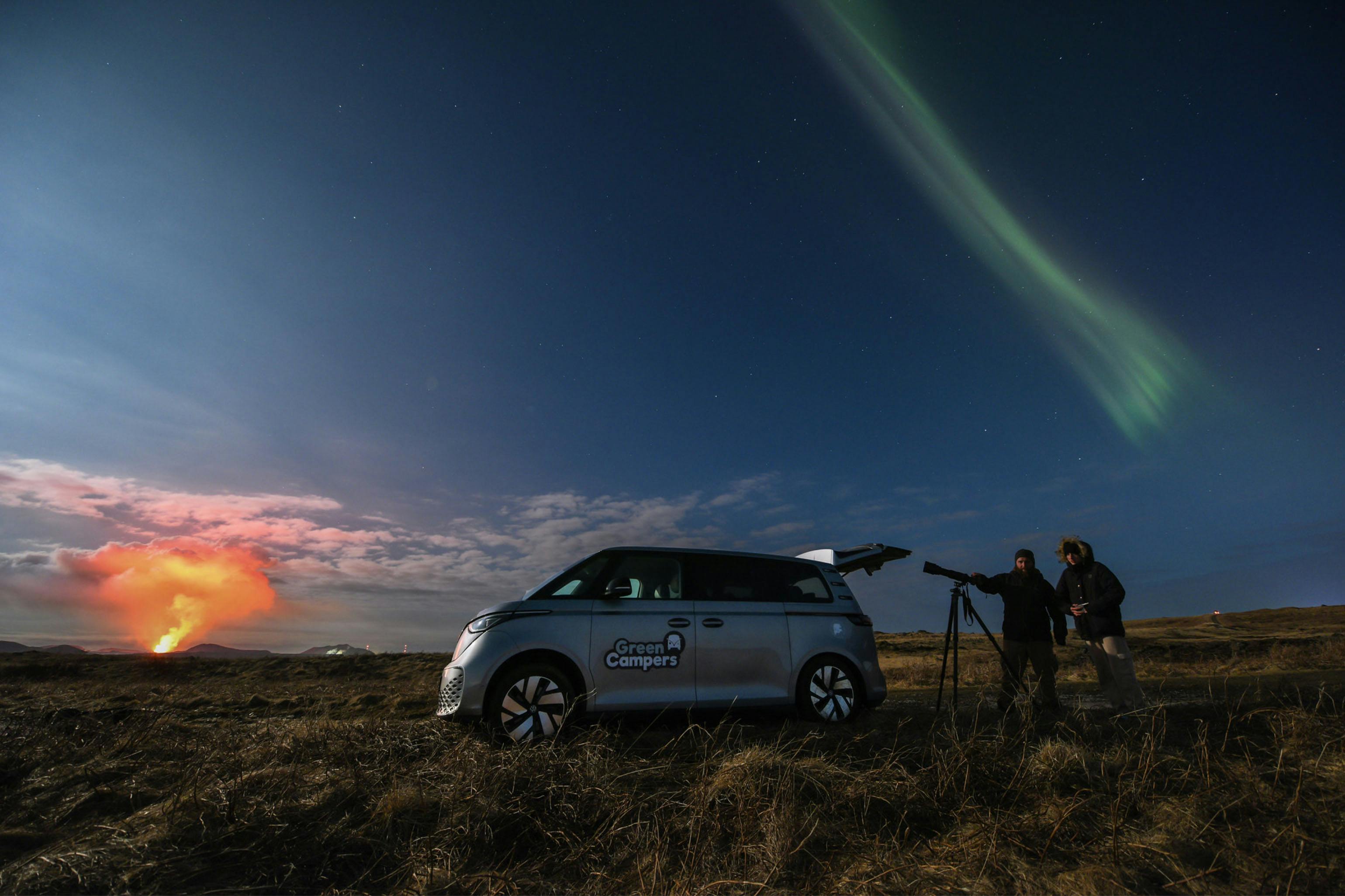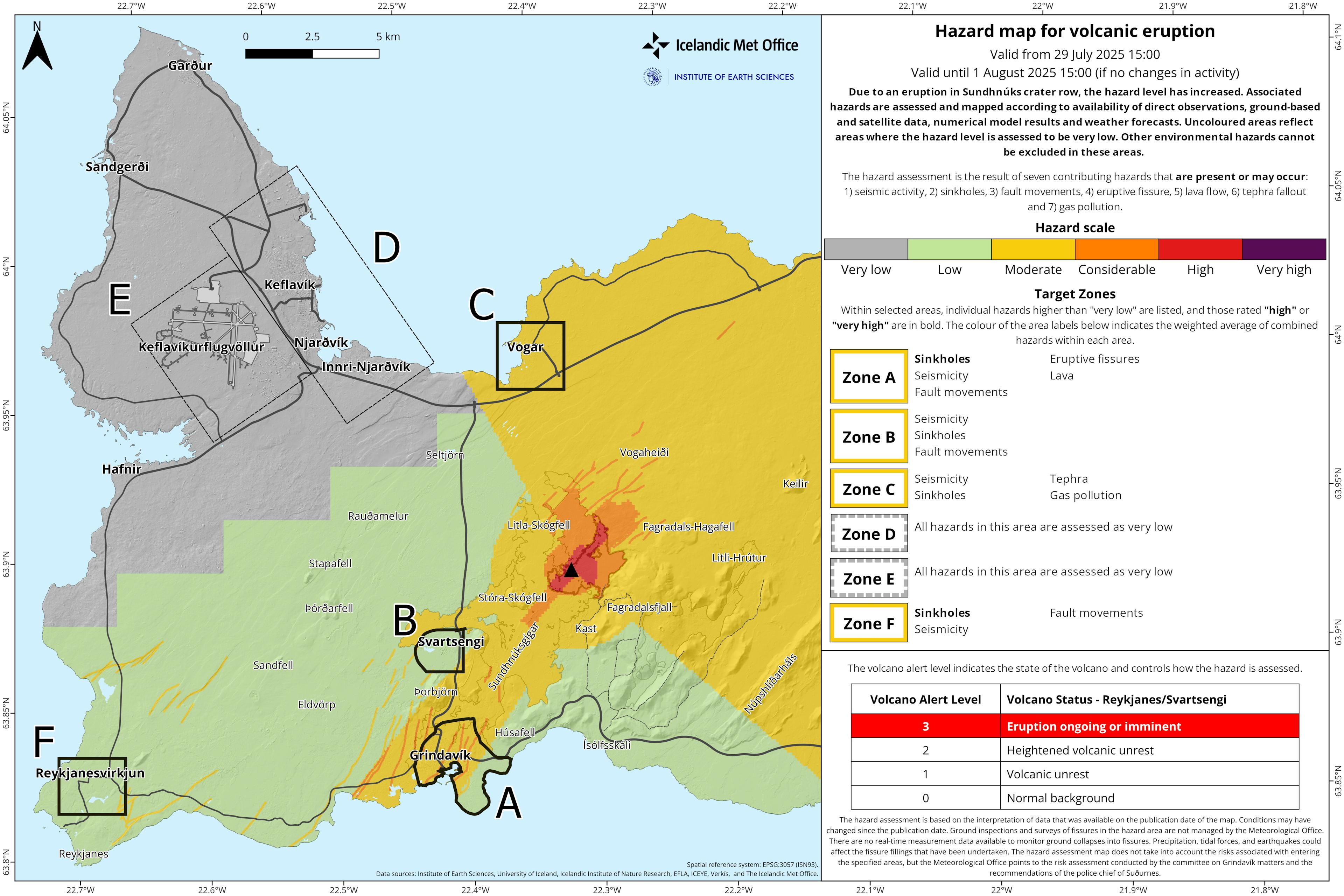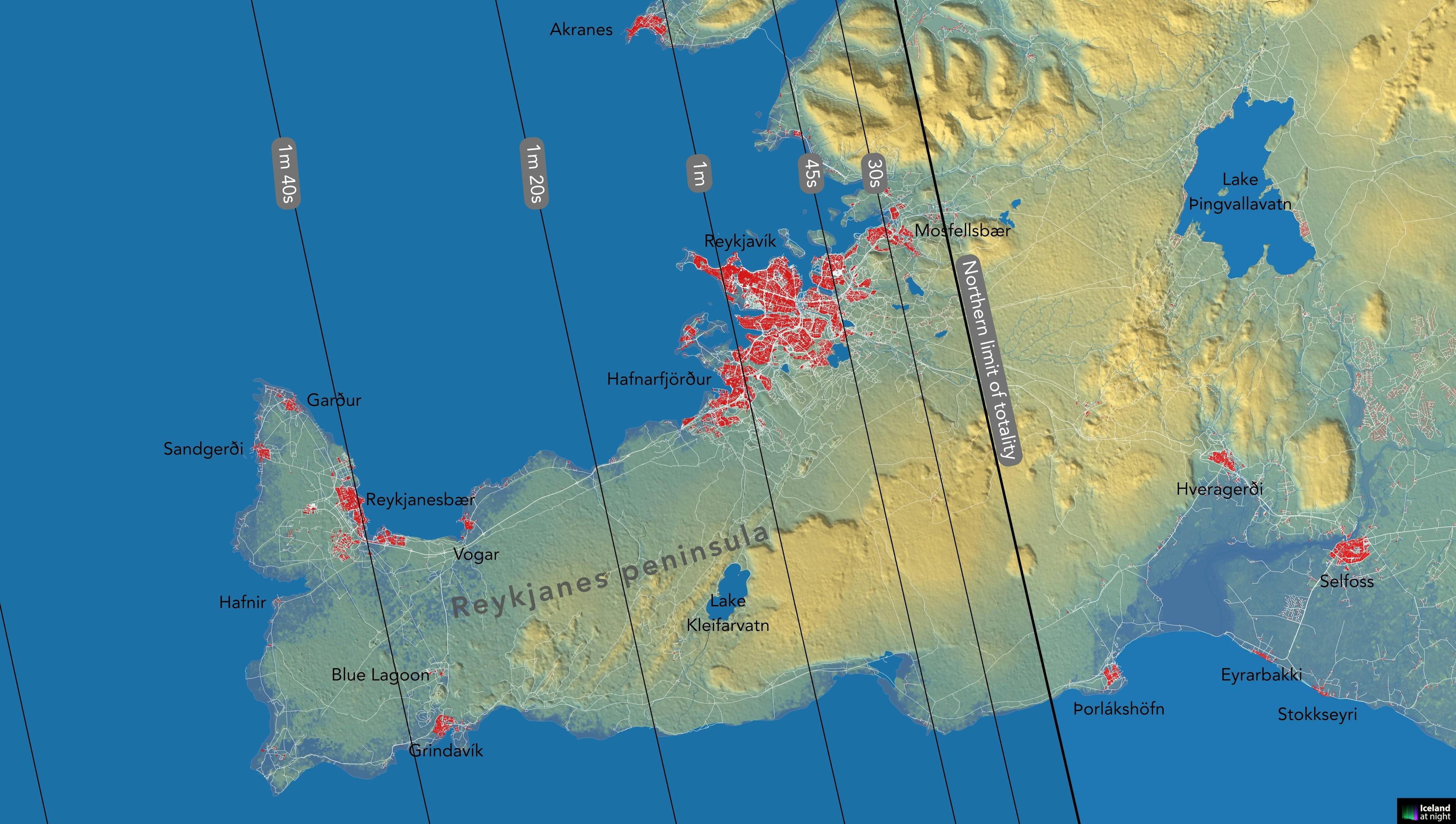
Will a volcanic eruption interfere with eclipse chasing?
For many eclipse chasers destined to be in Iceland on August 12, 2026, it’s not all about the total solar eclipse. Sure, it’s an event not to be missed, but there are other reasons for their travel plans — Iceland’s magnificent landscapes and spectacular geology.
But what happens if a volcano goes off? Is that a reason to call off a trip to see the eclipse? Absolutely not. Since 2021, there have been a series of small volcanic eruptions — called the Fagradalsfjall eruptions — on the Reykjanes Peninsula, mostly close to the town of Grindavík. The latest was on July 16 until August 5, 2025, at a separate site (though geologically linked) near the Sundhnúkur crater.
After 800 years of being dormant, Reykjanes is alive again. What’s more, the Reykjanes Peninsula is almost entirely within the path of totality on August 12, 2026. No wonder, then, that some tour companies are selling the eclipse, a volcanic eruption and the northern lights as a once-in-a-lifetime experience.

Travellers worried about the prospect of a volcano erupting during their stay can rest easy because these are small eruptions with little to no ash. They’re visually spectacular and, for the residents evacuated from Grindavík, they have been devastating. However, they are relatively minor, geographically confined events in a country well used to dealing with them.
The reason for the concern among travellers is memories of Eyjafjallajökull (pronounced “AY-yah-fyat-lah-yer-kuhtl”), a volcano that erupted in summer 2010, spewing vast amounts of ash into the atmosphere and causing havoc with air travel in northern Europe. It saw an eruption beneath the Eyjafjallajökull glacier, causing water to mix with magma to create tiny particles of ash.
By contrast, the Fagradalsfjall/Sundhnúkur events are basaltic fissure eruptions, which look spectacular but do not affect flights to/from Keflavík International Airport. The local impact is confined to temporary road closures and localized gas pollution, with those in the area with respiratory conditions advised to take extra care.
According to the Icelandic MET office — which publishes a hazard assessment map after an eruption — people should keep away from newly formed lava and the lava edge, and be wary of gas pollution near the eruption site.

For Icelandic people, eruptions like Fagradalsfjall are all part of living in one of the world’s most active geological regions. “You can just ignore the volcano — it’s not going to affect anything,” says Hannes Pálsson at Pink Iceland, which is planning multiple weddings across the region around the eclipse. “If there's an active eruption around the eclipse, that's just a bonus, because you may see the orange glow driving from the airport — and maybe during totality! But the fact that it's happening has no impact on daily life at all.”
So don’t worry too much about a volcano going off in Iceland to disrupt your travel plans — unless there’s another Eyjafjallajökull!
You can get the latest on volcanic activity from Visit Iceland and the Icelandic MET office, with updates on road closures from Safetravel.is and Road.is.

Jamie Carter is the author of Complete Guide to the Total Solar Eclipse 2026, The Eclipse Effect and When Is The Next Eclipse? A traveler’s guide to total solar eclipses 2026-2034